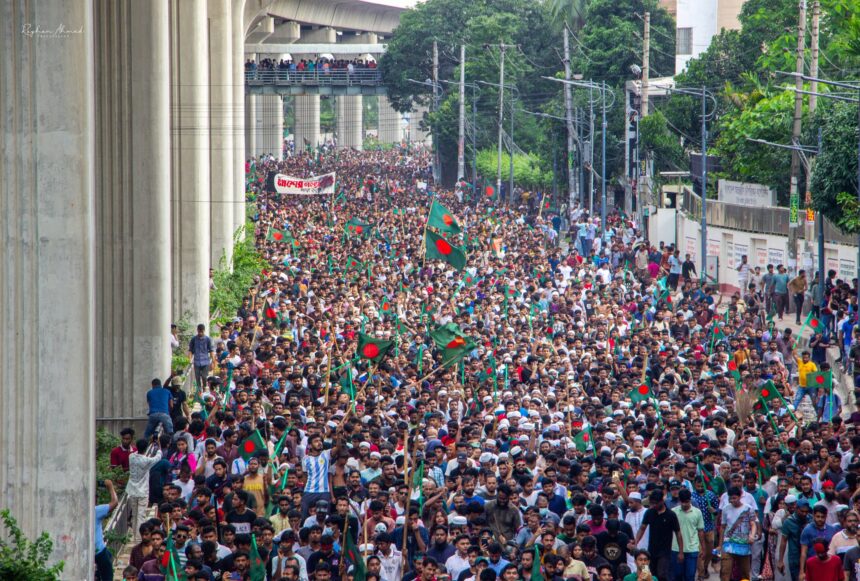Former Prime Minister of Bangladesh, Sheikh Hasina, and her administration allegedly attempted to maintain their grip on power through systematic and lethal violence against demonstrators, actions that the United Nations has characterized as potentially constituting “crimes against humanity.” UN human rights investigators have accused the ousted government of responding brutally to widespread opposition last year, resulting in the deaths of approximately 1,400 individuals, predominantly at the hands of security forces.
The UN team reported that there was “an official policy to attack and violently suppress anti-government protesters,” which was orchestrated by political leaders and high-ranking security officials. Hasina, who had served in her position for 15 years, evacuated to India via helicopter just prior to the storming of her residence by crowds last August.
The unrest originated from student-led demonstrations opposing quotas in civil service employment and evolved into a nationwide movement aimed at removing Prime Minister Hasina and her Awami League Party, particularly following a violent police crackdown. This incident resulted in thousands of injuries, marking the most severe violence Bangladesh has experienced since its independence war in 1971.
According to the findings of UN investigators, the then-government, including Sheikh Hasina, was “aware of and involved in very serious offences,” as stated by UN human rights chief Volker Türk during a press conference in Geneva.
“Among our key findings, there are reasonable grounds to believe that officials of the former government, its security and intelligence apparatus, along with violent factions linked to the former ruling party, perpetrated serious and systematic human rights violations,” Mr. Türk remarked.
The UN investigators documented instances of protesters being shot at point-blank range, others being deliberately maimed, as well as arbitrary arrests and instances of torture.
Children were also victims; the report estimates that up to 13% of the 1,400 fatalities recorded between July 1 and August 15 were minors.
“The brutal response was a calculated and well-coordinated strategy by the former government to maintain power amid widespread opposition,” Mr. Türk asserted.
He indicated that the evidence collected by his office illustrated “a disturbing picture of rampant state violence and targeted killings.”
“There are reasonable grounds to believe that hundreds of extrajudicial killing s, widespread arbitrary arrests and detentions and acts of torture were executed with the knowledge, coordination, and direction of political leaders and senior security officials as part of a strategy to quell the protests.”
The report was commissioned by Muhammad Yunus, the caretaker leader of Bangladesh, who expressed that he and his interim administration are dedicated to transforming Bangladesh into a nation where all citizens can live with security and dignity. The death toll reported by the UN team significantly exceeds the 834 fatalities recently estimated by his government.
The UN team responsible for the report comprised human rights investigators, a forensic physician, and a weapons expert. Their conclusions are primarily derived from over 230 interviews conducted with survivors, witnesses, and other relevant individuals. They were granted access to medical records, photographs, videos, and various other materials.
The report indicates that, “Former senior officials directly involved in managing the protests, along with other internal sources, detailed how the former prime minister and other high-ranking officials orchestrated and oversaw extensive operations in which security and intelligence forces shot and killed demonstrators or engaged in arbitrary arrests and torture.”
It identified patterns of security forces intentionally and unlawfully killing or injuring protesters, including instances where individuals were shot at close range. While the report attributes the majority of the violence to government security forces, it also highlights concerns regarding assaults on those perceived as supporters of the former administration, as well as on certain religious and ethnic communities. The UN Human Rights Office has called for investigations into these matters as well.






